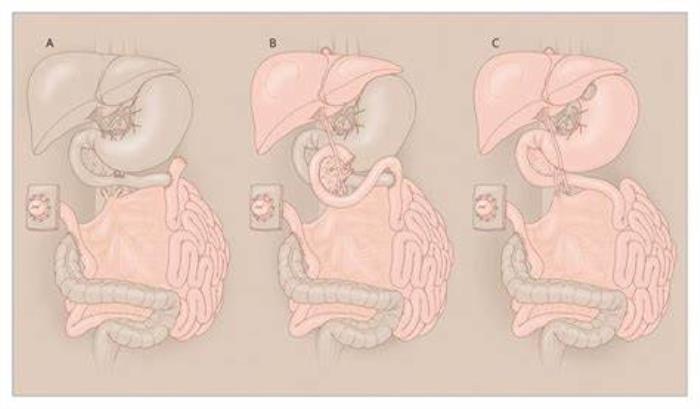Intestine transplantation is a complex surgical procedure aimed at treating patients with severe intestinal failure due to various digestive disorders. This procedure involves the replacement of a diseased or dysfunctional intestine with a healthy donor intestine. It is typically considered when conventional treatments, such as nutritional support or medications, fail to provide adequate relief. The surgery can significantly improve the quality of life for patients suffering from conditions like short bowel syndrome, intestinal dysmotility, or congenital intestinal defects.
Medical disclaimer: This content is for general awareness and does not replace a doctor’s consultation. For diagnosis or treatment decisions, consult a qualified specialist.
Indications for Intestine Transplantation in Patients
Intestine transplantation is indicated for patients with irreversible intestinal failure, where the intestine can no longer absorb nutrients effectively. Common indications include short bowel syndrome, resulting from surgical resections or congenital defects, and conditions leading to severe intestinal motility disorders. Patients with total parenteral nutrition dependency who experience complications such as liver failure or sepsis may also be candidates for transplantation. The decision to proceed with transplantation is made after thorough evaluations by a multidisciplinary team.
The Role of Multidisciplinary Teams in Transplantation
A successful intestine transplantation requires a coordinated effort from a multidisciplinary team of healthcare professionals. This team typically includes transplant surgeons, gastroenterologists, dietitians, social workers, and psychologists. Each member plays a crucial role in the pre-operative assessment, surgical procedure, and post-operative care. The team evaluates the patient’s overall health, nutritional status, and psychological readiness for surgery. Their collaborative approach ensures that all aspects of the patient's care are addressed, promoting better outcomes.

Pre-Transplant Evaluation Process for Candidates
The pre-transplant evaluation process is vital for determining a patient's suitability for intestine transplantation. This comprehensive assessment includes a detailed medical history, physical examination, and various diagnostic tests, such as imaging studies and laboratory evaluations. The goal is to identify any underlying conditions that may complicate the surgery or recovery. Additionally, psychological evaluations are conducted to assess the patient's mental health and support system, as a strong support network is crucial for successful post-transplant recovery.
Types of Intestine Transplantation Procedures Available
Intestine transplantation can be performed as either a isolated intestine transplant, where only the intestine is replaced, or as part of a combined organ transplant, such as a liver-intestine transplant. The choice of procedure depends on the patient's specific medical condition and the extent of organ dysfunction. Isolated transplants are typically indicated for patients with intestinal failure without liver disease, while combined transplants are reserved for those with concurrent liver failure. Each type of procedure has its unique considerations and potential risks.
Post-Operative Care and Management for Transplant Recipients
Post-operative care is critical for the success of intestine transplantation. Recipients require close monitoring in the immediate post-operative period to manage complications such as rejection, infection, and gastrointestinal complications. Immunosuppressive therapy is initiated to prevent organ rejection, and patients must adhere strictly to their medication regimen. Regular follow-up appointments are essential for ongoing evaluation of graft function and overall health. Nutritional support is also tailored to the individual needs of the patient to promote healing and recovery.
Potential Complications Associated with Intestine Transplantation
Like any major surgical procedure, intestine transplantation carries risks of complications. The most significant concern is acute rejection, where the body’s immune system attacks the transplanted organ. Other potential complications include chronic rejection, infections, and complications related to immunosuppressive medications, such as kidney damage or increased cancer risk. Gastrointestinal complications, such as diarrhea or obstruction, may also arise. Understanding these risks is essential for patients and their families in making informed decisions about transplantation.
Long-Term Outcomes and Quality of Life After Transplantation
Long-term outcomes following intestine transplantation have improved significantly with advancements in surgical techniques and immunosuppressive therapies. Many patients experience a significant enhancement in their quality of life, with improved nutritional status and reduced dependence on parenteral nutrition. However, long-term follow-up is crucial to monitor for complications and assess graft function. Regular screenings and lifestyle modifications can contribute to better outcomes, allowing patients to lead fulfilling lives post-transplantation.

Psychosocial Support for Patients Undergoing Transplantation
Psychosocial support is an integral component of the transplantation process. Patients and their families often face emotional challenges, including anxiety, depression, and adjustment issues. Access to mental health professionals, support groups, and counseling services can aid in addressing these concerns. Preparing for the emotional and psychological aspects of transplantation helps improve adherence to medical regimens and overall satisfaction with the transplant experience. Institutions often provide resources to support patients throughout their journey, from evaluation to post-operative care.
Financial Considerations and Insurance Coverage for Transplantation
Intestine transplantation is a costly procedure that involves various financial considerations, including pre-transplant evaluations, the surgery itself, and long-term follow-up care. Patients should explore their insurance coverage to understand what expenses will be covered. Many hospitals have financial counselors who can assist patients in navigating insurance policies and identifying potential financial assistance programs. Understanding the financial aspects is crucial for patients and families to prepare for the costs associated with transplantation.
Research and Innovations in Intestine Transplantation
Ongoing research in intestine transplantation focuses on improving surgical techniques, enhancing immunosuppressive protocols, and exploring new avenues such as bioengineering and stem cell therapy. Innovations in organ preservation methods and transplant logistics aim to increase donor organ availability and improve graft outcomes. Clinical trials are continuously evaluating new therapies and approaches to enhance the success rates of intestine transplantation, offering hope for future advancements in this field.
Living Donor Intestine Transplantation: An Overview
Living donor intestine transplantation is an emerging option that allows a healthy individual to donate a portion of their intestine to a recipient. This approach can reduce waiting times and improve transplant outcomes. However, it requires careful evaluation of the donor's health and the compatibility between donor and recipient. Living donor transplants can be more complex than deceased donor transplants, necessitating specialized surgical techniques and post-operative care to ensure the safety of both the donor and recipient.
Understanding the Donor Matching Process in Transplantation
The donor matching process is critical in intestine transplantation, as it ensures the best possible compatibility between the donor and recipient. Factors considered in matching include blood type, human leukocyte antigen (HLA) compatibility, and the recipient's medical condition. The transplant team utilizes a comprehensive database to identify suitable donors, prioritizing those who are most likely to achieve successful outcomes. Effective donor matching is essential to minimize the risk of rejection and improve graft survival.
Impact of Nutrition on Recovery After Intestine Transplantation
Nutrition plays a pivotal role in the recovery of patients following intestine transplantation. A well-balanced diet is essential for promoting healing, maintaining energy levels, and preventing complications. Patients are often placed on specialized nutritional regimens tailored to their individual needs, which may include enteral feeding or oral supplementation. Registered dietitians work closely with transplant recipients to develop personalized meal plans that support optimal recovery and long-term health, ensuring that nutritional needs are met while considering any dietary restrictions.
Importance of Adherence to Immunosuppressive Therapy Post-Transplant
Adherence to immunosuppressive therapy is crucial for the success of intestine transplantation. These medications help prevent organ rejection by suppressing the immune response. Patients must follow their prescribed medication regimen meticulously, as even minor lapses can lead to serious complications. Education on the importance of these medications, potential side effects, and the consequences of non-adherence is essential. Regular follow-up appointments allow healthcare providers to monitor medication levels and make necessary adjustments to optimize the patient's health.
Common Myths and Misconceptions About Intestine Transplantation
Several myths and misconceptions surround intestine transplantation that can lead to misunderstanding and hesitancy among patients. One common myth is that transplantation is a last resort; however, it can be a viable option for many patients with severe intestinal failure. Another misconception is that living with a transplanted intestine is the same as having a normal intestine, which is not entirely accurate, as recipients often face ongoing management and monitoring. Educating patients and their families about the realities of transplantation can help dispel these myths and promote informed decision-making.
The Role of Telemedicine in Intestine Transplant Follow-Up Care
Discover how telemedicine enhances follow-up care for intestine transplant patients. Learn about the convenience and effectiveness of virtual consultations.
Future Directions in Intestine Transplantation Research
The future of intestine transplantation lies in ongoing research aimed at improving patient outcomes and expanding the donor pool. Investigations into regenerative medicine, including tissue engineering and organ bioengineering, hold promise for creating viable alternatives to traditional transplantation. Furthermore, advancements in immunotherapy may enhance graft acceptance and reduce the need for long-term immunosuppressive therapy. Collaborative efforts among researchers, clinicians, and transplant centers are essential to drive innovation and improve the overall success rates of intestine transplantation.
Best Intestine Transplant in India
The Best Intestine Transplant in India offers a vital treatment option for patients with severe intestinal failure, combining advanced surgical techniques and comprehensive post-transplant care.
Best Intestine Transplant Hospitals in India
The Best Intestine Transplant Hospitals in India are equipped with cutting-edge technology and multidisciplinary teams, ensuring seamless patient care and successful transplant outcomes.
Intestine Transplant Cost in India
The Intestine Transplant Cost in India is competitively priced, providing access to world-class treatment with transparent pricing and comprehensive care packages.
Best Intestine Transplant Surgeons in India
The Best Intestine Transplant Surgeons in India are highly skilled and experienced, ensuring precise surgical interventions and personalized patient care for optimal recovery and long-term success.
FAQs About Intestine Transplantation for Digestive Disorders
What are the eligibility criteria for intestine transplantation?
Eligibility for intestine transplantation involves several factors, including the severity of intestinal failure, overall health status, and the presence of any contraindications such as active infections or malignancies. A comprehensive evaluation by a transplant team is necessary to determine candidacy.
How long is the recovery period after intestine transplantation?
The recovery period after intestine transplantation varies by individual but typically involves a hospital stay of several weeks, followed by months of outpatient follow-up. Full recovery can take up to a year, during which patients must adhere to strict medical regimens and lifestyle modifications.
What lifestyle changes are necessary after transplantation?
Post-transplant, patients may need to make significant lifestyle changes, including dietary modifications, regular exercise, and strict adherence to medication schedules. Avoiding infections and maintaining a healthy lifestyle are crucial for long-term success.
Can intestine transplantation cure digestive disorders?
While intestine transplantation can significantly improve the quality of life and nutritional status for patients with severe digestive disorders, it is not considered a cure. Ongoing medical management and follow-up care are essential for maintaining health post-transplant.
What is the role of immunosuppressive therapy in transplantation?
Immunosuppressive therapy is vital in preventing organ rejection following intestine transplantation. These medications suppress the immune response to the transplanted organ, reducing the risk of rejection and improving graft survival rates.
Explore the latest alternatives to intestine transplantation, including innovative therapies, emerging treatments, and patient success stories. Discover how advancements in medical science are providing new hope for managing intestinal disorders without the need for transplantation. Intestine Transplant Alternatives: Emerging Therapies and Innovations
Intestine transplantation is considered for patients with severe intestinal failure who cannot maintain adequate nutrition and hydration through other means. Conditions that may necessitate an intestine transplant include short bowel syndrome, intestinal failure, familial adenomatous polyposis, congenital mucosal disorders, and complications from total parenteral nutrition (TPN) such as liver failure and central venous catheter-related infections. Recognizing these signs early and consulting with a healthcare provider can help determine the need for transplantation. Signs and Conditions That May Require an Intestine Transplant
Intestine transplant surgery, while potentially lifesaving, involves several risks and complications. These include acute rejection, infections, bowel obstructions, bleeding, and complications from immunosuppressive medications. Long-term risks may include chronic rejection, kidney dysfunction, and cancer. Understanding these risks is crucial for patients and their families to make informed decisions and prepare for post-surgery care. Risks and Complications of Intestine Transplant Surgery